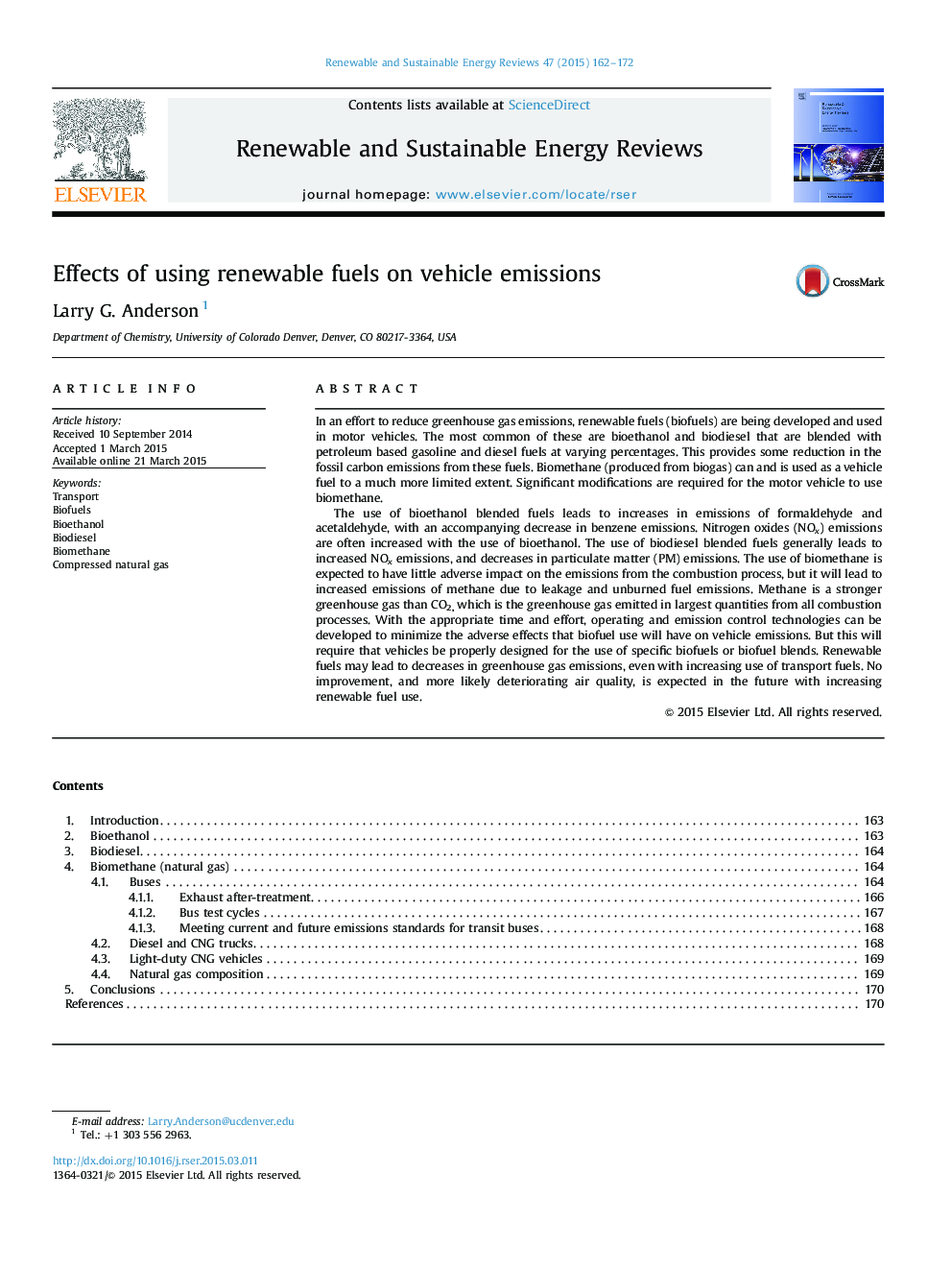| Article ID | Journal | Published Year | Pages | File Type |
|---|---|---|---|---|
| 8116661 | Renewable and Sustainable Energy Reviews | 2015 | 11 Pages |
Abstract
The use of bioethanol blended fuels leads to increases in emissions of formaldehyde and acetaldehyde, with an accompanying decrease in benzene emissions. Nitrogen oxides (NOx) emissions are often increased with the use of bioethanol. The use of biodiesel blended fuels generally leads to increased NOx emissions, and decreases in particulate matter (PM) emissions. The use of biomethane is expected to have little adverse impact on the emissions from the combustion process, but it will lead to increased emissions of methane due to leakage and unburned fuel emissions. Methane is a stronger greenhouse gas than CO2, which is the greenhouse gas emitted in largest quantities from all combustion processes. With the appropriate time and effort, operating and emission control technologies can be developed to minimize the adverse effects that biofuel use will have on vehicle emissions. But this will require that vehicles be properly designed for the use of specific biofuels or biofuel blends. Renewable fuels may lead to decreases in greenhouse gas emissions, even with increasing use of transport fuels. No improvement, and more likely deteriorating air quality, is expected in the future with increasing renewable fuel use.
Related Topics
Physical Sciences and Engineering
Energy
Renewable Energy, Sustainability and the Environment
Authors
Larry G. Anderson,
